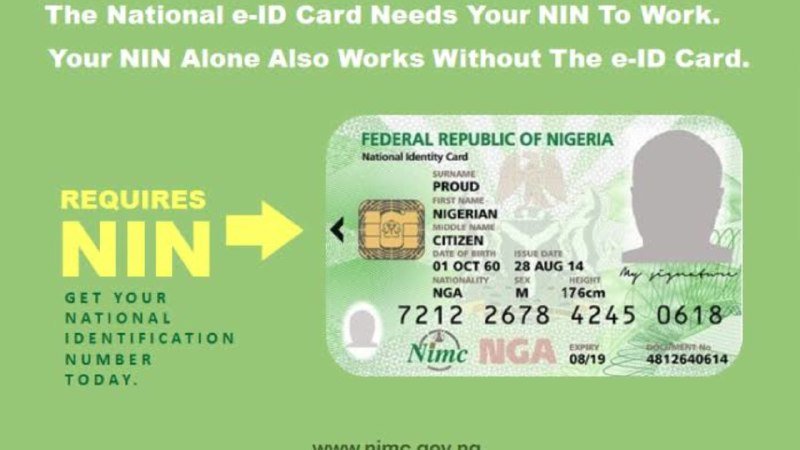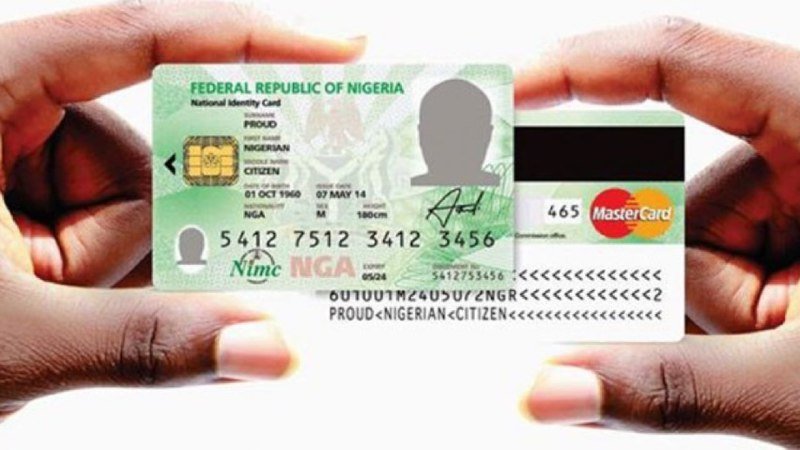Fourteen years after its establishment and nine years after issuing the first unique National Identification Number, the National Identity Management Commission is still battling to enrol Nigerians.

Worse still, the renewed attempt by the NIMC to enlist the citizens is bedevilled by sluggishness and lack of capacity, all leading to widespread allegations of fraud at the overcrowded registration centres nationwide.
Although the idea behind linking a national electronic ID card with a mobile ID scheme is laudable, the Nigerian Communications Commission, the Ministry of Communications and Digital Economy, and the Major-General Muhammadu Buhari (retd.) regime are going about it the wrong way.
The scheme, in part, is to make it extremely difficult for terrorists and other criminals to create false IDs. But the Minister, Isa Pantami, threw the country into a panic in December when the NCC threatened to revoke the phones of Nigerians whose lines were not linked to their NINs by December 30.
Instantly, crowds besieged the NIN registration centres. It was a presumptuous deadline. It coincided with the more deadly second wave of the pandemic, forcing applicants to disregard the COVID-19 protocols.
After an outcry, the NIMC shifted the deadline to January 19 and February 9. Even that was still not enforceable because NIMC staff embarked on a strike, claiming poor welfare.
As of February 1, only 56.8 million subscribers had linked their NIN to their SIM cards. Bearing in mind that the average NIN holder has more than one line, the registration has a long way to go.
In spite of this, all the NIMC did was to issue a new deadline of April 6. In all probability, this too is not feasible. In a civilised country, where the citizens are not taken for granted, the authorities would be given sufficient time for their NIN/SIM linkage.
Of all the anomalies associated with the NIN registration, it is its penchant to instigate corruption that is most egregious. The media has been awash with allegations of bribery, extortion and other forms of corruption from the hard-pressed applicants since December.
This is plausible because there are unimaginable crowds of applicants at the few centres in a country of 206 million people. At most NIMC centres, officials claim they can only register between 20 and 30 people a day.
In this rowdy situation, bribes have been exchanging hands. Some applicants said they bought food, petrol and data for NIMC staff to enable them do their work. Some applicants alleged that they paid as high as N30,000 as a bribe to get enrolled. Although the NIMC has granted the telecoms operators and a few digital firms the licence to register applicants, the process is still significantly bogged down in delays.
Incidentally, the registration of citizens has a long history of fraud and non-completion in Nigeria. Back in 1978, the Ministry of Interior had saddled the Department of National Civil Registration with the task of issuing National ID cards.
The project lasted 18 months, but the DNCR engaged a private firm in 2001 to enrol and issue ID cards at a cost of $236.8m. After five years in which 37.3m people were registered, the project was abandoned.
This led to the establishment of the NIMC in 2007. Curiously, many of those who have enrolled have not obtained their national electronic card years after registration. With the NIMC inefficient, many federal agencies have developed their own ID card systems. They constantly burden citizens with cumbersome and punishing biometric registration processes with various threats.
Read Also: See New Guidlines For NIN Registration Applicants
Among the prominent ones: just before the 2019 general election, the Independent National Electoral Commission had registered 82 million voters biometrically and issued them with the permanent voter card. Claiming it would prevent fraud, the Central Bank of Nigeria and the Bankers Committee initiated the biometric Bank Verification Number of customers in February 2014.
Till date, it has enrolled 43.2m customers. The Federal Road Safety Corps, the Nigeria Immigration Service, the Pensions Commission and some state governments all have their own biometrics for Nigerians.
Before then, the NCC directed all SIM card owners to register their telephone lines biometrically. Yet, unregistered SIMs are still being used unhindered on the GSM networks.
But the biggest issue is that of duplicity and waste. As all agencies’ cards are not interlinked, the government keeps subjecting citizens to carrying multiple ID cards and harrowing registration procedures. This is needless. With appropriate technology, one biometric registration should take care of all the others.
Instead of issuing unrealistic deadlines, this should be Pantami’s target. The government’s duty is to make life easy for the citizens, not to compound their woes. These agencies should collaborate, end the waste and stop the unnecessary threats to Nigerians.
Read Also: See How To Link Your Phone Numbers/SIM With NIN
Population should not be a problem. In one year, India, which has the world’s second largest population (1.25bn), used digital identity registration for the financial inclusion of 125 million citizens as part of its acclaimed Aadhaar national identity project. Altogether, the Aadhaar project enrolled 840 million or 67 percent of the Indian population between 2011 and 2016.
This integrated technological system has the advantage of reducing waste. A 2016 World Bank report entitled, ‘ID4D Country Diagnostic: Nigeria,’ stated that India’s identity registration costs $2 per head. This is for a lifetime identity. In Nigeria, the report said it cost $5 per head, but the NIMC has imposed various fees for renewal after the first five years of registration.
It is wrong to rush citizens into a project that technological advancement would soon render obsolete. Recently, the EU has given two years to its member states to implement security features of ID cards aligned with those of passports.
Even at that, the directive comes into force 12 months after publication and states have two years to comply. This new ID means a single card can offer a host of applications – from acting as a driver’s licence, enabling the user to file their taxes, or giving him/her access to state benefits.
Read Also: Problems Affecting National ID Card Registration
Therefore, Pantami should listen to the voice of the defenceless and check the blind rush for NIN registration. He should shift the deadline properly and ensure that the adequate capacity is built up at the registration centres to eliminate the present fraud-ridden exercise. As COVID-19 is still raging, effort should be intensified to stop the gathering of huge crowds at the NIN centres.
Source: Punch
Post Disclaimer
The opinions, beliefs and viewpoints expressed by the author and forum participants on this website do not necessarily reflect the opinions, beliefs and viewpoints of Anaedo Online or official policies of the Anaedo Online.

